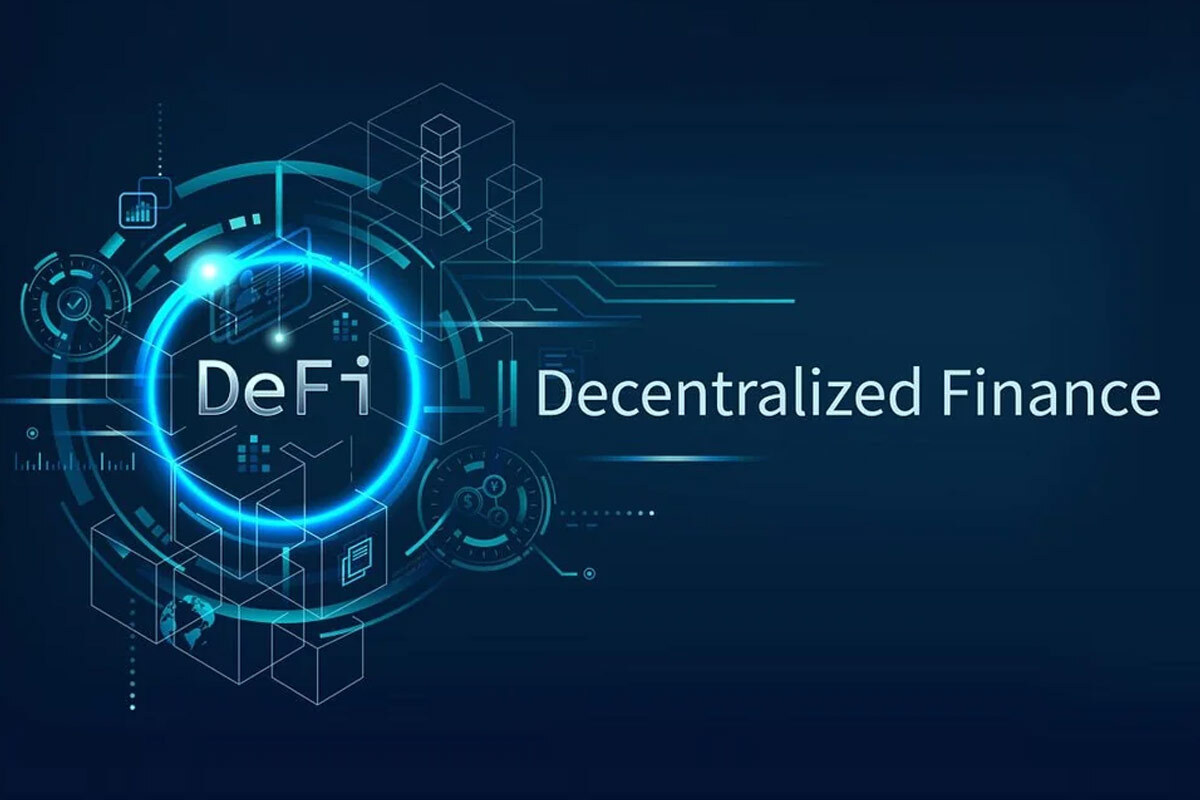Prospects, Advantages, and Importance of Decentralized Finance (DeFi)
- February 16, 2024
- Jennifer Moore

Decentralized finance (DeFi) refers to those financial instruments that do not require any dependence on intermediaries. The intermediaries in the financial sector include exchanges, banks, and brokerage firms. Decentralized finance largely relies on the smart contracts feature of blockchain technology. DeFi platforms help in speculating assets by using cryptocurrencies, savings account interests, and derivatives.
Prospects of Decentralized Finance (DeFi)
The growth of cryptocurrencies is a testament to the fact that the acceptability of decentralized finance is increasing worldwide. In 2024, the revenue in the cryptocurrency market is expected to reach over $51.5 billion. The CAGR of crypto revenue is expected to cross $71.7 billion by 2028. Therefore, it is very important to highlight the prospects of DeFi.
Decentralized Exchanges (DEXs)
Decentralized exchanges do not allow exchanges between fiat and cryptocurrencies. They allow the trading of cryptocurrency tokens for other cryptocurrencies. The main distinction between decentralized exchanges and centralized exchanges is that centralized exchanges (CEX) help in trading fiat currency with cryptos and vice versa. The decentralized exchanges have smart contracts. They determine the rates of different cryptos and use liquidity pools. It facilitates trades and locks funds in interest exchange.
Stablecoins
Cryptocurrencies are volatile and their prices fluctuate considerably. Stablecoins have the potential to stabilize their values by linking cryptocurrencies with fiat currencies such as the American dollar. Thus, sometimes stablecoins have links with precious commodities such as gold. Therefore, though officially a part of decentralized features, the influence of centralized currencies like the American dollar is undeniable in its daily value.
E-Wallets
Decentralized finance is incomplete without mentioning the prospects of e-wallets. Therefore, it can operate independently of large cryptocurrency exchanges and offers investors access to cryptos and blockchain games.
Non-Fungible Tokens (NFT)
Non-fungible tokens (NFT) are unique digital assets that are directly replaceable with other digital assets. These NFTs build on blockchain and guarantee ownership of assets. Hence, NFTs are fully customizable and this is the reason it has bright prospects in all sectors. Thus, it can represent any form of digital creation such as writing, drawing, art, and music.
Advantages of Decentralized Finance (DeFi)
There are many advantages of decentralized finance and this is why its future is promising.
- DeFi offers financial services to those sections of the population that are unbanked and unprivileged.
- DeFi has the potential to offer alternative ways of financial management and therefore offers users many options.
- Online financial privacy and censorship-resistant transactions.
- Faster and cheaper transactions are the hallmarks of decentralized finance. This can break free the shackles of financial limitations of many enterprises.
Importance of Decentralized Finance (DeFi)
Decentralized Finance is gaining importance because people around the world are realizing the shortcomings of centralized finance. Many governments are changing their earlier hostile attitudes towards cryptos and are already talking about regulations to streamline decentralized finance.
- Security and transparency- DeFi, though not invincible, offers a higher layer of security compared to centralized finance.
- Interoperability- DeFi is mostly built on open software and therefore has high degrees of interoperability.
- Better accessibility- Decentralized finance is now more accessible than the traditional financial system. This automatically has the potential to become the main source of financial help for low-income areas and developing countries.
Also Read- How PayBitoPro Can Help in Achieving Financial Equality?
Conclusion
Decentralized finance (DeFi) has a lot of implications for various sectors including the big data sector. It will help in maintaining new ways of commodifying data and lead to financial freedom for many unbanked and underprivileged people in the world. The importance of DeFi is unignorable now because even the governments, central banks, and financial institutions are showing eagerness to take strong measures to regulate it.
Categories
- AI (6)
- Altcoins (10)
- Banking (10)
- Bitcoin (132)
- Bitcoin ETF (11)
- Bitcoin Price (30)
- Blockchain (47)
- Brokering World Hunger Away (16)
- Business (7)
- CBDC (11)
- COVID-19 (3)
- Crypto ATMs (1)
- Crypto Banking (15)
- Crypto Bill (1)
- Crypto broker platform (26)
- Crypto Investment (3)
- Crypto Markets (3)
- Crypto Payment (26)
- Crypto Prices (1)
- Crypto Trading (88)
- Cryptocurrency (360)
- Cryptocurrency Exchange (94)
- Data Visualization (2)
- Decentralized Finance (7)
- DeFi Payment (9)
- DEX (3)
- Digital Currency (22)
- Ethereum (1)
- FAQ (6)
- Finance (24)
- Financial Equality (4)
- Financial Freedom (8)
- Forex (24)
- ICO (1)
- Investment (11)
- Mining (3)
- News (63)
- NFTs (2)
- P2P (1)
- PayBitoPro (599)
- PayBitoPro Coin Listing (6)
- PayBitoPro Exchange (2)
- Post COVID Digital Transformation (1)
- Press Release (130)
- Privacy & Security (3)
- Real Estate (1)
- Stablecoin (4)
- Technology (14)
- Uncategorized (2)
- US Presidential Election (2)
- Utility Coin (1)
- Web3 Wallets (1)
- White Label Crypto Broker Solution (1)
- White Label Crypto Exchange (6)





